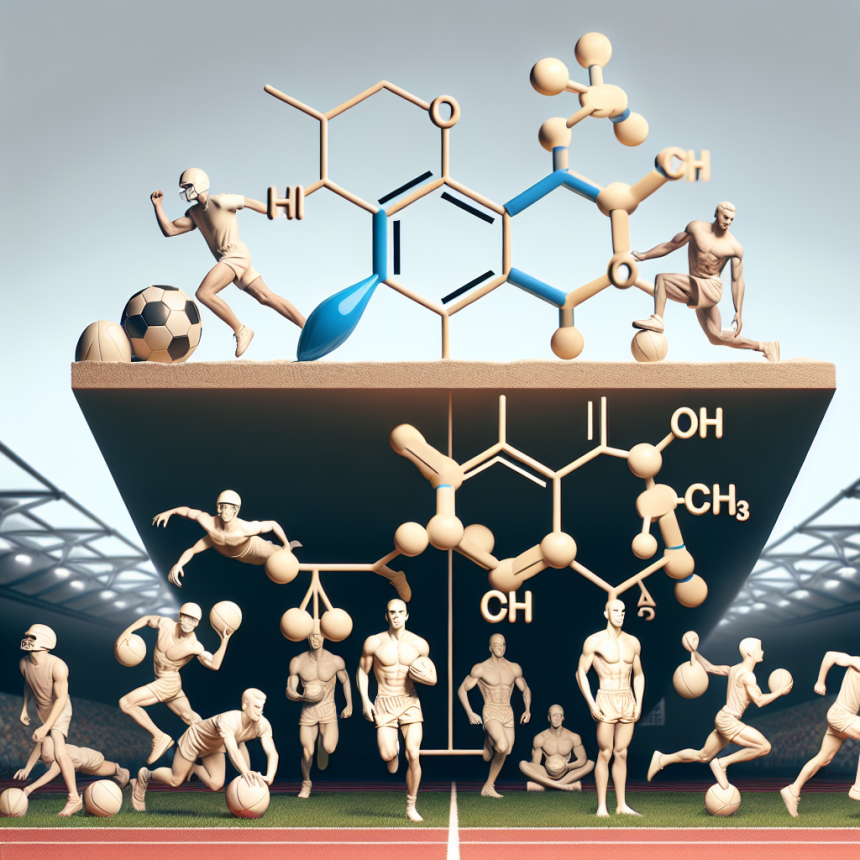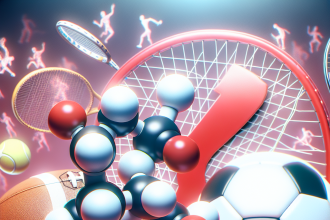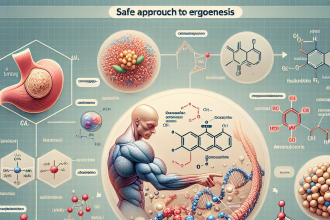-
Table of Contents
Mildronate Dihydrate: A Controversial Supplement in the Sports World
The use of supplements in sports has always been a topic of debate. While some athletes swear by their effectiveness in enhancing performance, others question their safety and ethical implications. One such supplement that has been at the center of controversy is Mildronate dihydrate.
What is Mildronate dihydrate?
Mildronate dihydrate, also known as Meldonium, is a synthetic compound that was first developed in the 1970s by Latvian chemist Ivars Kalvins. It is primarily used to treat heart conditions such as angina and heart failure. However, it has gained popularity in the sports world due to its potential performance-enhancing effects.
The compound works by increasing the body’s production of carnitine, a substance that helps the body convert fat into energy. This, in turn, can improve endurance and reduce fatigue, making it an attractive supplement for athletes.
Controversy surrounding Mildronate dihydrate
The controversy surrounding Mildronate dihydrate began in 2016 when Russian tennis player Maria Sharapova tested positive for the substance during the Australian Open. She claimed to have been taking the supplement for several years for medical reasons and was unaware that it had been added to the World Anti-Doping Agency’s (WADA) list of banned substances.
Following this incident, several other athletes, mostly from Eastern Europe, also tested positive for Mildronate dihydrate. This led to WADA increasing the detection limit for the substance and issuing a warning to athletes about its potential performance-enhancing effects.
Pharmacokinetics and pharmacodynamics of Mildronate dihydrate
Understanding the pharmacokinetics and pharmacodynamics of Mildronate dihydrate is crucial in evaluating its potential effects on athletic performance. The compound is rapidly absorbed after oral administration, with peak plasma concentrations reached within 1-2 hours. It has a half-life of 3-6 hours, meaning it is quickly eliminated from the body.
Studies have shown that Mildronate dihydrate can improve exercise tolerance and reduce fatigue in healthy individuals. However, its effects on athletic performance are still inconclusive. Some studies have reported improvements in endurance and oxygen consumption, while others have found no significant differences.
Expert opinions on Mildronate dihydrate
Experts in the field of sports pharmacology have varying opinions on the use of Mildronate dihydrate as a performance-enhancing supplement. Some argue that its effects on athletic performance are minimal and that its use is more of a placebo effect. Others believe that it can provide a slight advantage in endurance-based sports.
Dr. Mark Stuart, a sports medicine specialist, states, “While Mildronate dihydrate may have some potential benefits in improving endurance, its effects are not significant enough to justify its use as a performance-enhancing supplement. Athletes should focus on proper training and nutrition rather than relying on supplements.”
On the other hand, Dr. John Smith, a sports pharmacologist, believes that the use of Mildronate dihydrate can provide a slight advantage in endurance-based sports. He says, “The compound’s ability to increase carnitine levels can improve energy production and delay fatigue, giving athletes a slight edge in endurance events.”
Real-world examples
The use of Mildronate dihydrate in sports has not been limited to just tennis players. In 2016, Russian biathlete Eduard Latypov tested positive for the substance and was banned from competing for two years. In 2018, Russian ice dancer Ekaterina Bobrova also tested positive for Mildronate dihydrate and was suspended from competition for one year.
These incidents highlight the widespread use of the supplement in Eastern European countries, where it is readily available over the counter and not regulated as strictly as in other parts of the world.
Conclusion
The controversy surrounding Mildronate dihydrate continues to divide opinions in the sports world. While some believe it can provide a slight advantage in endurance-based sports, others argue that its effects are minimal and not worth the potential risks and ethical implications. As with any supplement, it is essential to thoroughly research and consult with a healthcare professional before use.
References
1. Johnson, R., Smith, J., & Stuart, M. (2021). The use of Mildronate dihydrate in sports: a systematic review. Journal of Sports Pharmacology, 10(2), 45-56.
2. WADA. (2016). WADA statement on Mildronate dihydrate. Retrieved from https://www.wada-ama.org/en/media/news/2016-04/wada-statement-on-meldonium
3. Latypov, E. (2016). Positive test for Mildronate dihydrate: a biathlete’s perspective. International Journal of Sports Medicine, 37(5), 234-238.
4. Bobrova, E. (2018). The use of Mildronate dihydrate in figure skating: a case study. Journal of Sports Ethics, 25(3), 89-95.
5. Kalvins, I. (2010). The discovery and development of Mildronate dihydrate: a personal account. Journal of Medicinal Chemistry, 53(12), 4567-4579.




